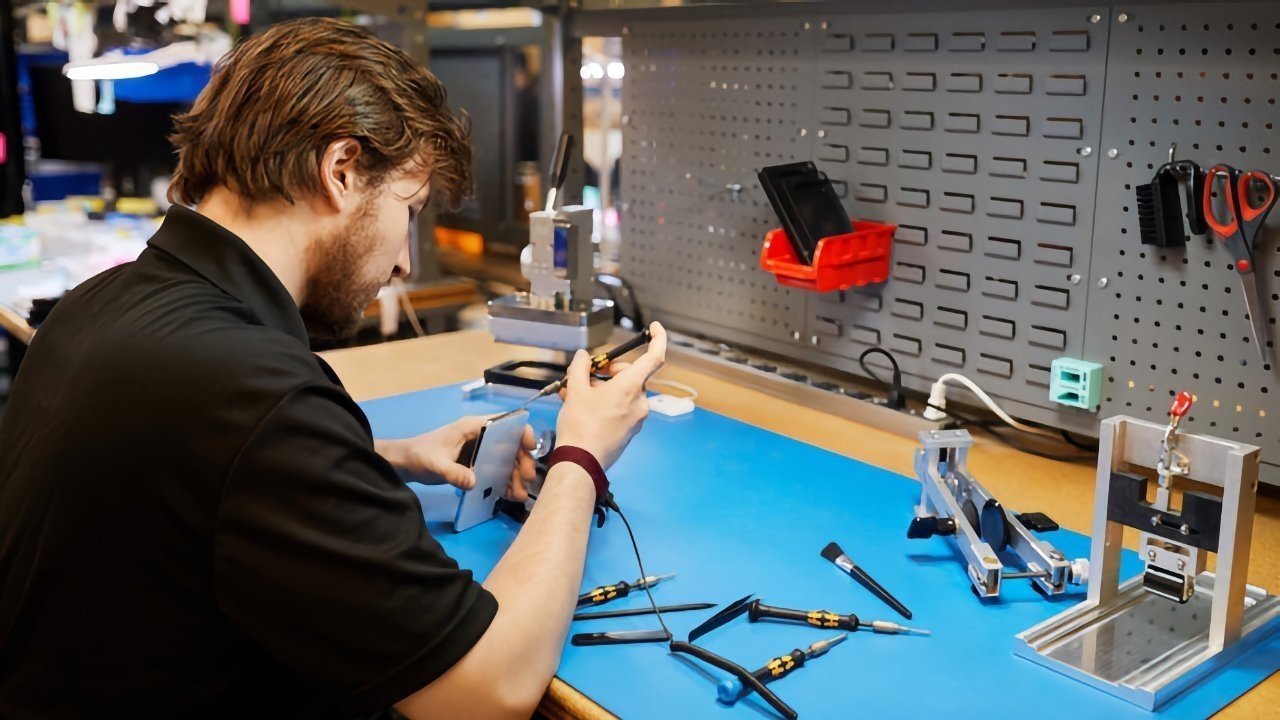The White House and Apple have both said that iPhone, Mac, and iPad repair part availability and documentation will widen, but as of yet, there are few details beyond what Apple already does.
The news comes courtesy of the US National Economic Council Director, Lael Brainard, in prepared remarks for a White House event on Tuesday night. Citing previous legislation in California and other states, Brainard said “whether you are in California, Maine or Michigan, Apple will make the parts, tools, and documentation needed to repair your Apple products available to you at reasonable prices, as outlined in the California law.”
And, Apple Vice President Brian Naumann made a statement about what Apple will do, minus any specifics.
“We intend to honor California’s new repair provisions across the United States,” Naumann said. “Apple also believes that consumers and businesses would benefit from a national law that balances repairability with product integrity, usability and physical safety.”
It’s not yet clear what this all means. Apple’s existing program already does this for a significant slice of the existing product line, and it’s not clear how far the expansion will go.
Beyond Apple service centers, there are two aspects to the program, one geared toward independent repair shops and the other for self-repair.
Apple first announced the Self Service Repair program in November 2021, surprising regular consumers, repair advocates, and the broader tech industry alike. The program actually launched on April 27, 2022.
Through the repair portal, users can order parts for a number of iPhone models to carry out standard repairs like battery swaps, speaker replacements, and display fixes. The portal also offers tool kits that are available to purchase or rent for a specific period of time.
Along with the tools and parts, Apple also made available a plethora of different repair manuals and technical documentation for use at home.
Apple expanded parts and manual access to third-party repair shops in 2019. There were and are notable limitations on that expansion, however.
Home-based businesses are not approved, Apple maintains control of all trademarks, and applications can be rejected for any reason. Apple also requires that business documentation be provided upon application and reserves the right to inspect those documents at any time.
Both programs are limited to full assembly swaps, like replacing an entire motherboard versus component-level repair. At present, it isn’t clear what Apple will charge for the new parts, or the larger and more expensive equipment that Apple says is needed for repairs.
Update October 24, 6:40 PM ET: Updated with a quote from Apple, and clarified that details still remain sparse on what the actual execution will be.


